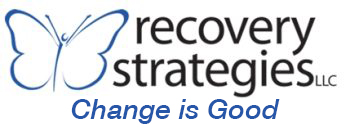Recovery Strategies offers comprehensive and professional services for expectant and new mothers. Recovery Strategies offers individualized treatment programs for each patient.
Since SUBOXONE is not advised for pregnant women, Recovery Strategies has developed a separate program with the use of Buprenorphine (Subutex), keeping withdrawal to a minimum for Mom and Baby. Combine that with our “mommy-to-be,” and “new mom” group and the expectant mother will feel prepared, informed, and healthy.
Recovery Strategies prevention and education services highlight the dangers of drug use, reinforce self-esteem, and educate adults to make positive choices. Our program focuses on the devastating effects of addiction and the harmful effects of abusing medications such as hydrocodone, oxycodone, oxycontin, valium, Xanax, as well as meth, cocaine, crack.
Studies suggest that roughly 13 percent of pregnant women in the United States use illicit substances during pregnancy. Of those, 19 percent abuse opiates such as heroin, morphine and prescription drugs.
It is critical to talk to a doctor or clinic as soon as possible if you’re addicted to opiates and you’re pregnant or planning to become pregnant. Opiate treatment programs can help minimize pregnancy complications and help you understand your options.
The Consequences of Opiate Addiction During Pregnancy
If you’re addicted to heroin or another opiate drug, chances are you’re not receiving the prenatal care you need. One study suggests that 75 percent of all pregnant heroin addicts never seek prenatal care, which has serious implications for the woman’s ability to have a healthy pregnancy and birth.
Women who abuse opiates during pregnancy put their babies at risk of:
- Low birth weight
- Behavioral problems
- Developmental delays
- Learning disabilities
- Neonatal abstinence syndrome
- Stillbirth
Women who abuse heroin, prescription drugs or other opiates are more likely to abuse other harmful substances. They are also more likely to have poor nutrition, engage in illegal behavior and transmit blood-borne illnesses to their unborn baby (from injecting heroin).
Opiate Withdrawal During Pregnancy
Suddenly stopping the use of heroin and other opiates can have a severe impact on an unborn child. The side effects of opiate withdrawal, which can include nausea, vomiting, diarrhea, agitation, aches and insomnia, impact the baby as much as the mother. In severe cases, the result can be miscarriage, premature labor or fetal distress. If a pregnant woman must go through withdrawal, experts recommend that it only be done at certain times and under close medical supervision.
Just as the mother goes through withdrawal, so does her newborn baby. This period of withdrawal is also known as neonatal abstinence syndrome (NAS).
Babies with NAS may need to stay in the hospital until the symptoms pass. In the meantime, they may be given the same types of drugs that are used to treat adult opiate withdrawal. The dose is slowly reduced until the baby is no longer dependent.
Treating Opiate Addiction
Ideally, women should seek addiction treatment before getting pregnant. Those who become pregnant while addicted to opiates are usually best suited for maintenance treatment or other medically assisted treatment. Medical staff will ensure that treatment is carefully planned and monitored.


